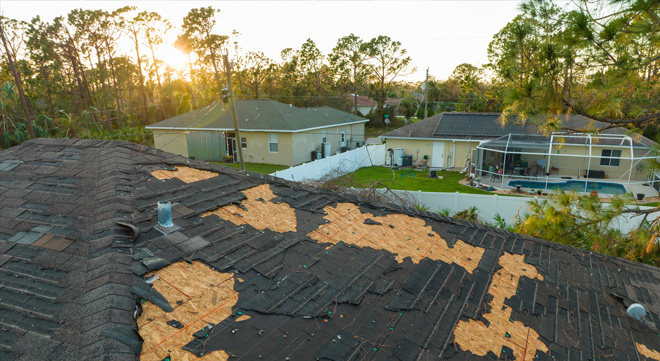If you’ve put off fixing that leaking roof, skipped the electric fence check, or ignored your mechanic’s advice to replace worn brakes, you might be setting yourself up for a rejected insurance claim.
Thousands of South Africans found this out the hard way in 2024, according to the latest annual report of the National Financial Ombud Scheme (NFO).
Between March and December 2024, the NFO opened 18 903 complaints – with the Non-life Insurance Division responsible for nearly 60% of them. It closed 9 289 of the 11 217 complaints it handled during that period.
The most common reason for claims being turned down across homeowners’, household contents, and commercial insurance was exclusions related to wear and tear, gradual deterioration, and lack of maintenance.
Read: Non-life insurance ombud sees 11% drop in complaints in 2024
These types of rejections were up 7% in the homeowners’ insurance category compared with 2023, while exclusions in the commercial category – covering business premises and vehicles – rose by 6%. Household contents insurance saw the biggest increase, with an 18% spike in rejections due to poor upkeep.
John Wessels, actuary and member of the Short-term Insurance Committee of the Actuarial Society of South Africa (ASSA), says policyholders often overlook a key part of their cover – the duty to maintain their property.
“Your building, household, and vehicle insurance will therefore exclude cover for damage or loss caused as a result of poor maintenance or negligence,” he says. “Known as exclusions, these clauses are often overlooked and misunderstood by policyholders.”
Most short-term policies include “general duty of care” clauses, Wessels explains, which are there to prevent avoidable damage and ensure policyholders take reasonable steps to safeguard their assets. These provisions are essential to keeping premiums fair.
He adds: “If insurers didn’t apply exclusion clauses and paid out for damage caused by neglect, premiums would become unaffordable. Policyholders who look after their property would end up subsidising those who don’t.”
Acts of nature and duty of care
In 2024, rejected claims for loss or damage due to acts of nature contributed 40% of complaints submitted to the NFO.
Wessels says short-term insurers usually receive high volumes of claims following acts of nature. He adds that, upon assessment by insurers, it is often found that weather-related damage could have been prevented had the damaged property been properly maintained or if proper risk avoidance measures had been followed. Common examples include water damage caused by roofs that were not adequately maintained, collapsed boundary walls that had been in desperate need of repair for years, and swimming pools that cracked because of neglect.
And, says Wessels, if you decide to try your luck crossing a river in flood with your new off-road vehicle, despite warnings from disaster management not to attempt this, your insurer is also unlikely to cover the cost of a new car.
Wessels also cautions homeowners to ensure that home security is maintained and functional.
“If your home is burgled and the claims assessor finds that access was gained to your home because the electric fence was not working, the security cameras were no longer monitored, or that you had not replaced a broken security gate lock, your claim will likely be rejected.”
He says the same “general duty of care” applies to vehicle owners. For instance, if an auto repair centre advised that a car’s brakes were completely worn and needed replacement, but the owner delayed the repair due to financial constraints, this could have serious consequences. If the vehicle is involved in an accident a month later, and the claims assessor determines that the worn brakes contributed to the incident by preventing timely braking, the insurer may reject the claim.
Understanding exclusions and their implications
Wessels notes that some short-term insurers are focused on creating greater awareness among policyholders of their “general duty of care” responsibility by highlighting exclusions in the policy document and explaining them. He urges policyholders to open these documents, usually emailed together with the policy renewal notice, and to read them.
If you have not heard from your short-term insurer for a while, Wessels advises that you make an appointment with your broker or insurance company and ask them to explain the exclusions and their implications for you.




